Texloop™ Fabric | Tintex x RCOT™ Primo Natural Dye Interlock/Pique
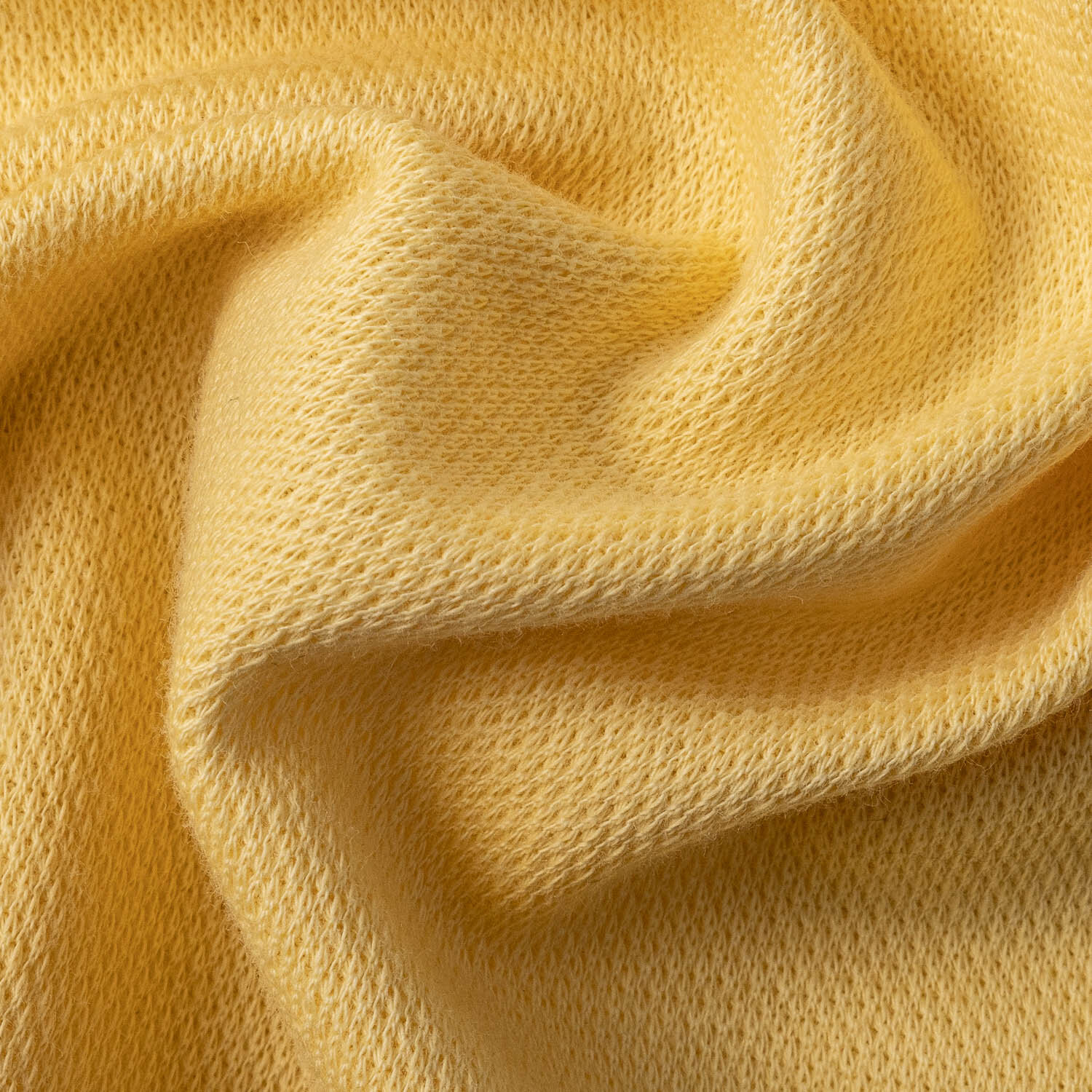
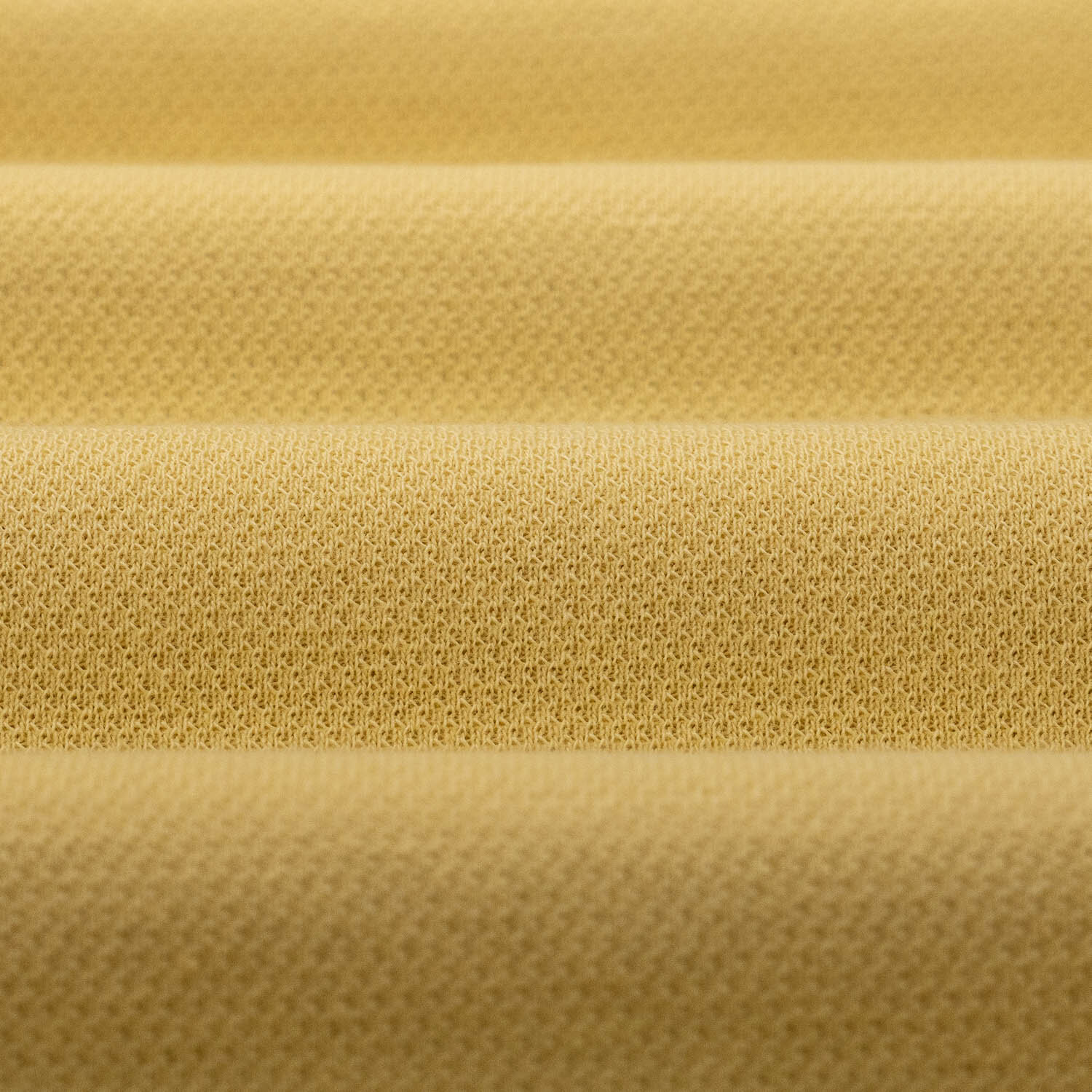
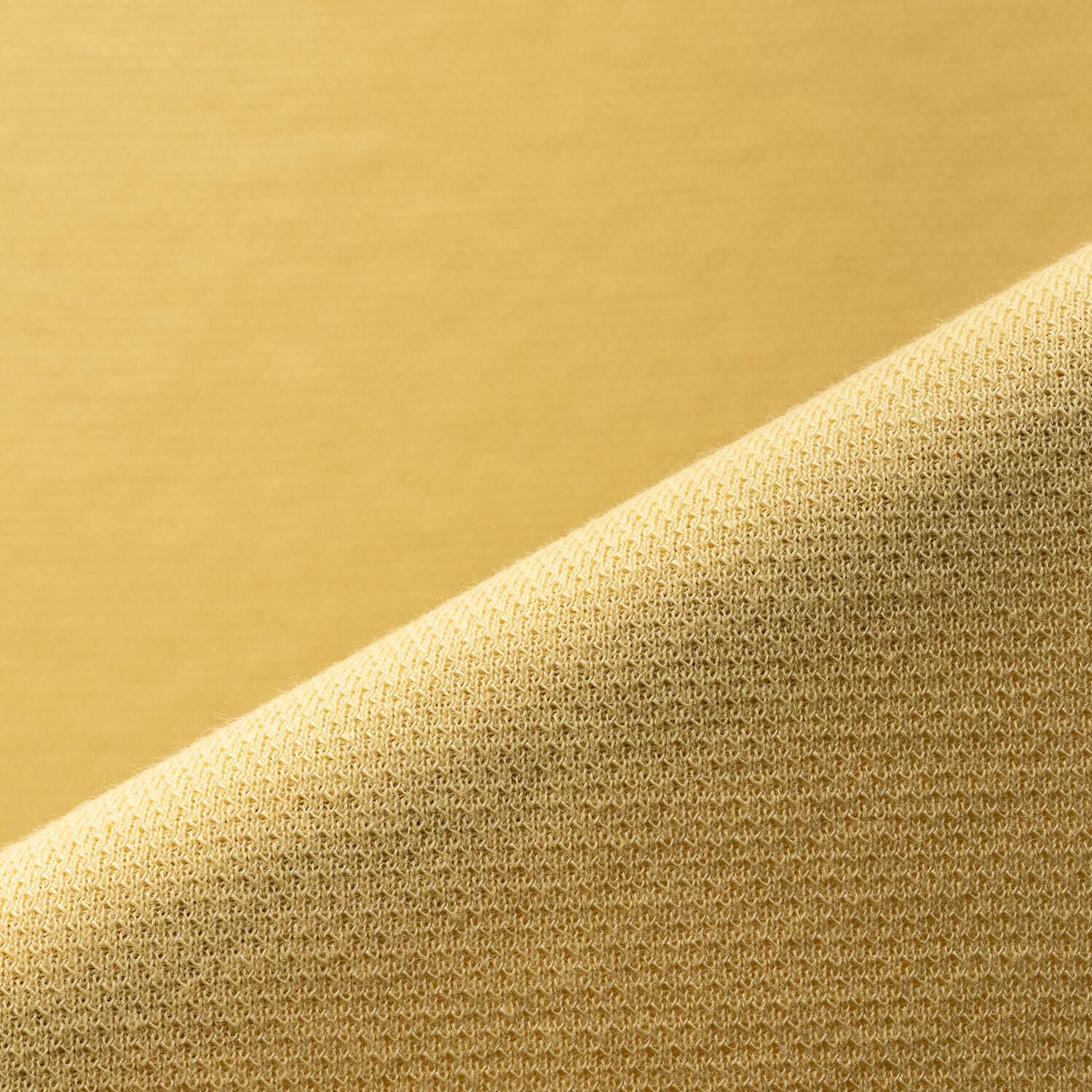
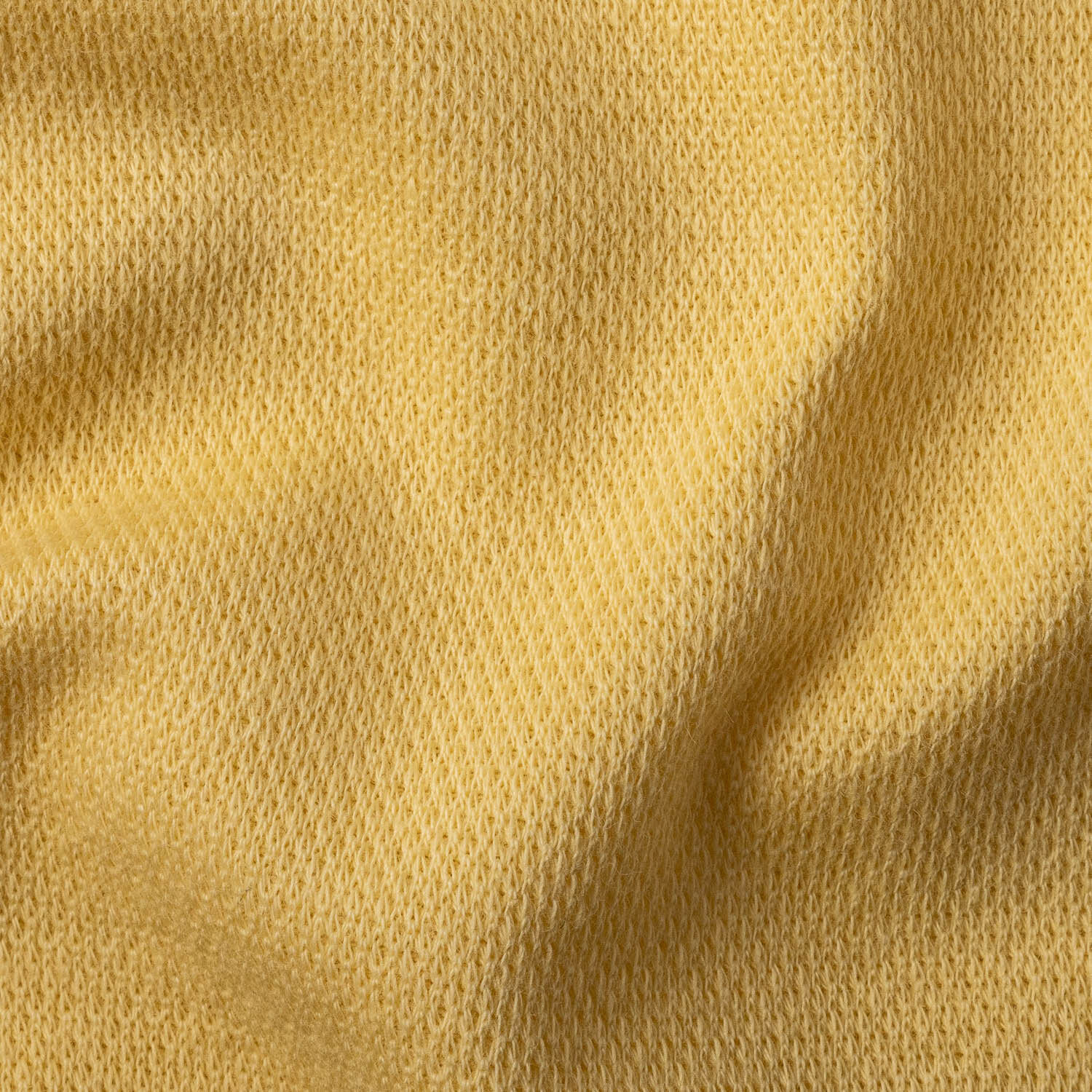
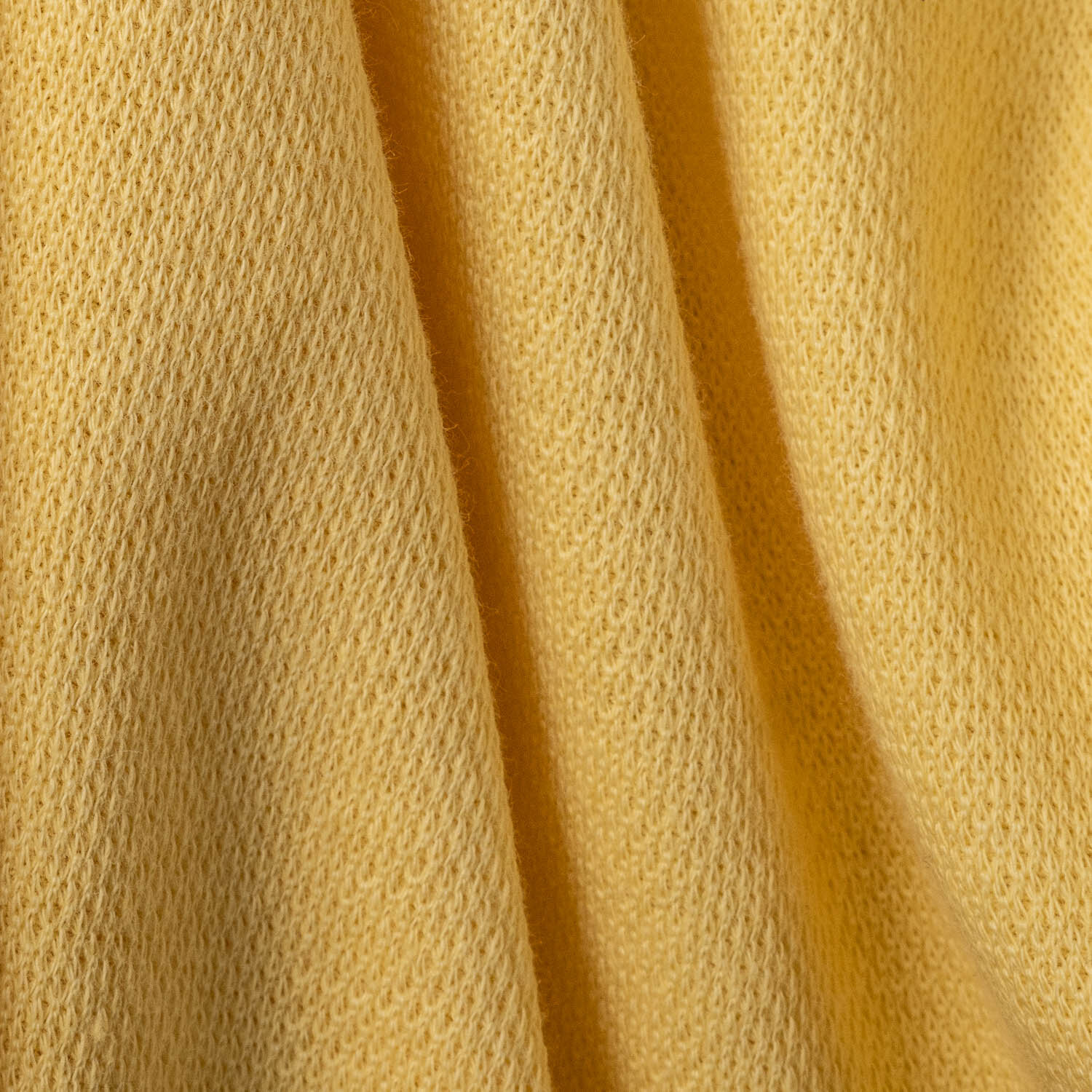
Texloop™ Fabric | Tintex x RCOT™ Primo Natural Dye Interlock/Pique
5866ND01
50% RCOT™ Rec. Cttn./50% Org. Cttn.
220 GSM | 180 cm
Tintex x RCOT™ Primo Natural Dye Interlock/Pique
Style #: 5866ND01
Composition: 50% RCOT™ Rec. Cttn./50% Org. Cttn.
Weight: 220 GSM
Width: 180 cm
Fabric Construction: Interlock/Pique
Yarn: Ne 30/1 (RS) RCOT™ Primo + Organic
Certifications: GRS, OCS
With the combination of two different types of surfaces, interlock and pique, a compact and casual structure was developed. Cotton is responsible for the softness, comfort, and flexibility, while the structure guarantees good breathability with fluid a drape.
The recycled cotton feedstock comes from high quality, long staple, post-industrial waste (pre-consumer).
Finishing, coating & dyeing techniques
Colorau™ Natural extract-based dyeing technology stands for the following technical advantages:
• Uses only compounds of natural origin such as thyme, boldo and peppermint to chestnut and gambier in textile substrates to produce functional and sustainable textiles using different fibers such as cotton, lyocell and wool.
• Development of eco-efficient and low temperature surface treatment to improve the affinity between textile substrates and natural compounds.
• Selection of “performing” extracts for appropriate color fastness to light and washing as well as color durability and antimicrobial functionality of textiles.
• Technology applied to mimic the beauty and uniqueness of nature.
| HIGG LCIA Impacts Per KG of Material |
100% Conventional Cotton |
50% RCOT™ 50% Org. Cttn. |
% of Savings |
|---|---|---|---|
| Water Consumption (Liters) |
2505 | 234 | 91% Less |
| Global Warming (kg CO2 eq) |
5.3 | 3.8 | 29% Less |
| Abiotic Resource Depletion, Fossil Fuels (MJ) |
43.5 | 32.6 | 25% Less |
Developed by the Sustainable Apparel Coalition, the Higg Materials Sustainability Index (MSI) provides access to a large amount of relevant information about the impacts of material production used in the apparel, footwear, and home textile industries. The Higg MSI uses peer-reviewed life-cycle impact assessment data (LCIA) to quantify the environmental impacts of material production from the extraction or production of raw materials through manufacturing, finishing, and preparation for assembly. Trusted by leading brands, retailers, manufacturers, and sustainability experts, the MSI features the latest cutting-edge available data for materials and manufacturing processes.
Tintex x RCOT™ Primo Natural Dye Interlock/Pique
Style #: 5866ND01
Composition: 50% RCOT™ Rec. Cttn./50% Org. Cttn.
Weight: 220 GSM
Width: 180 cm
Fabric Construction: Interlock/Pique
Yarn: Ne 30/1 (RS) RCOT™ Primo + Organic
Certifications: GRS, OCS
With the combination of two different types of surfaces, interlock and pique, a compact and casual structure was developed. Cotton is responsible for the softness, comfort, and flexibility, while the structure guarantees good breathability with fluid a drape.
The recycled cotton feedstock comes from high quality, long staple, post-industrial waste (pre-consumer).
Finishing, coating & dyeing techniques
Colorau™ Natural extract-based dyeing technology stands for the following technical advantages:
• Uses only compounds of natural origin such as thyme, boldo and peppermint to chestnut and gambier in textile substrates to produce functional and sustainable textiles using different fibers such as cotton, lyocell and wool.
• Development of eco-efficient and low temperature surface treatment to improve the affinity between textile substrates and natural compounds.
• Selection of “performing” extracts for appropriate color fastness to light and washing as well as color durability and antimicrobial functionality of textiles.
• Technology applied to mimic the beauty and uniqueness of nature.
| HIGG LCIA Impacts Per KG of Material |
100% Conventional Cotton |
50% RCOT™ 50% Org. Cttn. |
% of Savings |
|---|---|---|---|
| Water Consumption (Liters) |
2505 | 234 | 91% Less |
| Global Warming (kg CO2 eq) |
5.3 | 3.8 | 29% Less |
| Abiotic Resource Depletion, Fossil Fuels (MJ) |
43.5 | 32.6 | 25% Less |
Developed by the Sustainable Apparel Coalition, the Higg Materials Sustainability Index (MSI) provides access to a large amount of relevant information about the impacts of material production used in the apparel, footwear, and home textile industries. The Higg MSI uses peer-reviewed life-cycle impact assessment data (LCIA) to quantify the environmental impacts of material production from the extraction or production of raw materials through manufacturing, finishing, and preparation for assembly. Trusted by leading brands, retailers, manufacturers, and sustainability experts, the MSI features the latest cutting-edge available data for materials and manufacturing processes.







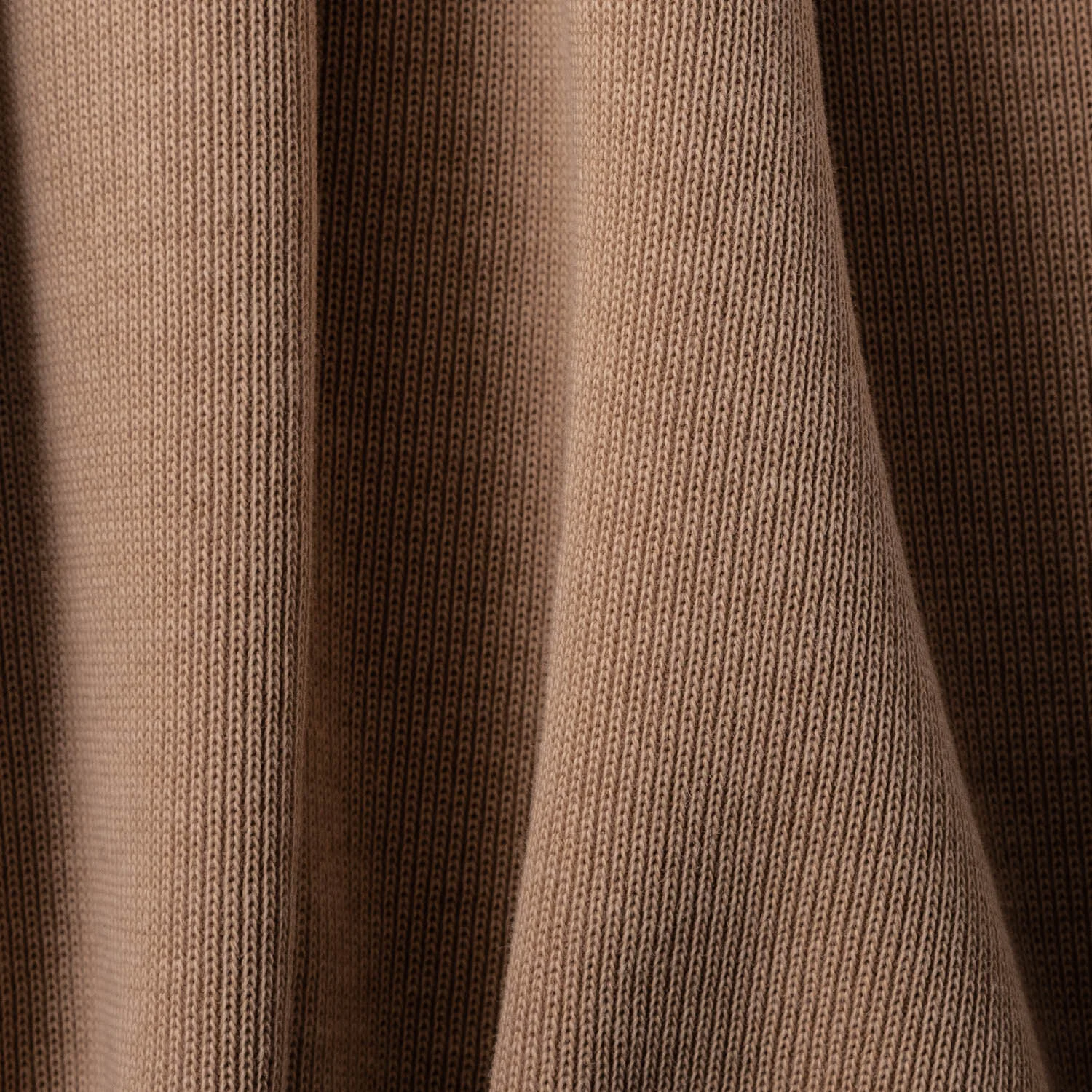
5869ND01
50% RCOT™ Rec. Cttn./50% Org. Cttn.
240GSM | 120 cm